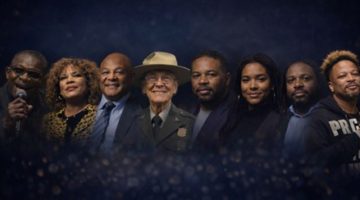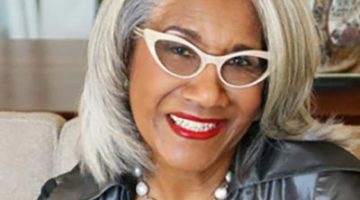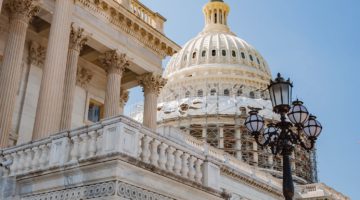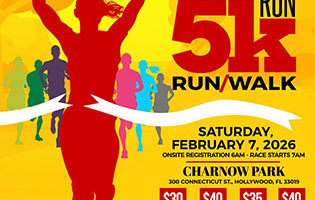 Special to South Florida Times
Special to South Florida Times
RIVIERA BEACH — They are in an elite club: professional athletes at the top of their careers and have savored the privilege that comes along with life in pro sports.
But before they hit the big time, most of these men were far removed from an environment of glitz and glamour.
Harper, who went on to a lucrative career as a pro athlete, didn’t have the fancy clothes back then that his friends wore or the $5 or $10 to go out to a movie and get a bite to eat.
For his mother, making ends meet was hard enough growing up in the housing projects of West Palm Beach, Harper recalled, but she taught him faith and he believes God sent guardian angels into his life to get him where he is today.
One of those “guardian angels” who looked over Harper and many other young children as they grew up in tough situations in the inner-city was Dan Calloway. He is perhaps the most well-known figure in youth recreational sports in the Palm Beaches.
A former professional baseball player with the Pittsburgh Pirates, Calloway returned to Palm Beach County and started the Youth Recreation Association. From there, he touched one generation of youth after to another and still another and continues today.
Nearly everyone in the inner-city who has played recreational sports in Palm Beach County has been touched by Calloway. He created the area’s Police Athletic League when he worked in law enforcement, in order to get officers more involved with inner-city youth.
His accolades in sports are too many to list and he prefers not to mention his accomplishments anyway. But what some may not know is the key role he had in helping those who went on to star in the NFL and the NBA and the countless youth his organization sent to college.
“He knew my mother couldn’t afford to buy me the latest tennis shoes or whatever, so he often helped me out,” said Harper, who was a star athlete before he reached high school. “Many times he would shake my hand and slip me a $20 because he wanted to help me out.”
But it wasn’t just Harper to whom Calloway slipped a few dollars. It was a long list of other youth, many of whom ended up in the pros, helped by Calloway simply because he was aware that their families didn’t have the money to help them. And current and former players all say the same thing: Danny Calloway made a big difference in their lives before the bright lights and big contracts.
Lamar Parrish says he owed his life to Calloway. He is the first black professional footballer to come out of Palm Beach County, drafted in 1971. Calloway says Parrish was the inspiration for the formation of the Youth Recreation Association.
“Words cannot say what he has meant to me over all these years,” said Parrish, who was back in town recently at Calloway’s request for a gathering of many pro athletes originally from the area. “There’s not a week that goes by that I don’t call him for advice and to thank him.”
That’s why many of them came back home for the reunion of sorts, organized by Calloway. They include Otis Anderson, Anquan Bolden, Carlos Carson and Abe Elam.
During the gathering, Calloway had them go to a neighborhood park in Riviera Beach, the predominantly black city where it began for some of them. Most players learned recreational sports or how to swim at Tate Recreational Center, since renamed the Dan Calloway Recreational Complex, for the man who designed it and another local gym where youth could go inside and play during bad weather.
But instead of focusing on his own accomplishments, Calloway just wants to continue to help his community in any way possible. He says that’s one reason why he brought the current and former pro players together. He is hoping they will pool their resources and build a shelter for the homeless in Riviera Beach.
“We need a place for the many homeless people in Palm Beach County,” Calloway says. “It will be a soup kitchen and a place for people who have AIDS or those who want to get tested and get resources.”
Calloway acknowledges that many players already contribute to their hometown in different ways, such as holding camps, providing scholarships and helping various causes. Elam, a Riviera Beach native who plays for the Cleveland Browns, took students who performed well on the FCAT to a restaurant to celebrate their achievement and to encourage them to continue doing well in their studies.
Calloway commends these current and former players for giving back – something many of them say they learned from his example.
“When you’re in people’s lives, you do it because it’s the right thing to do,” Calloway said.
Now he wants to see something that would have a more permanent impact on the city – such as a homeless shelter.
“It will be somewhere [people] can go when they fall on hard times,” Calloway says. “Everyone needs a little help now and then.”
Photo by: ALAN LUBY/FOR SOUTH FLORIDA TIMES
Lamar Parrish and Dany Calloway









No Comment